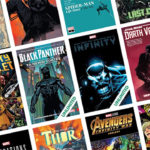The Greatest Sidney Poitier Films, Ranked
It started with Norman Brokenshire. As a young man from the Bahamas, aspiring actor Sidney Poitier had a thick accent, which prevented him from landing regular roles. And so he spent his nights listening to radio reports from Brokenshire, also known as “Sir Silken Speech.”
From those informal lessons, Poitier developed one of the greatest tools in the history of cinema, a smooth, strong, and (crucially) controlled voice. Poitier’s characters used that voice as a weapon to cut through walls of bigotry, a song to romance the objects of his affection, and a sputtering instrument to draw laughs from the audience.
As both an actor and a director, Poitier created incredibly memorable films, sometimes for their fearless tackling of issues of the day and sometimes for their egoless embrace of goofy farce, all presented in his unmistakable voice.
1. A Raisin in the Sun (1961)

To write her play A Raisin in the Sun, Lorraine Hansberry drew from her family’s own experiences trying to move into a majority-white neighborhood. In the same way that her father wrestled with contracts that prevented Black people from purchasing property in the neighborhood, Walter Lee Younger must listen while a neighborhood manager explains why he and his family would not make good neighbors.
As severe as those stakes certainly are, Poitier brings a spark of energy and humor to his performance as Walter Lee. At turns angry, charming, and hilarious, Poitier brings Walter Lee’s humanity to the forefront of his take on the famous play.
2. The Defiant Ones (1958)

On paper, The Defiant Ones sounds like a cheesy issue movie, only slightly better than the sci-fi comedy The Thing Who Two Heads. It stars Tony Curtis and Poitier as two convicts shackled together and on the run from police after a transport accident. But rather than lean into the cheese, director Stanley Kramer, working from a script from Harold Jacob Smith and Nedrick Young, underscores the disparities experienced by the two men, both held down by a ruling class trying to shore up its advantage.
Poitier never surrenders the dignity of his character Noah Cullen, letting just a stare or smile communicate his refusal to be defined by the chains put upon him.
3. In the Heat of the Night (1967) Sydney Poitier

“What do they call you up there?” asks belligerent white police Chief Gillespie (Rod Steiger) when Virgil Tibbs (Poitier), a Black detective from Philadelphia, has come to investigate a murder in Mississippi. Without shouting, without backing down, Poitier looks Gillespie in the eye to answer. “They call me Mr. Tibbs,” he declares.
With that exchange from director Norman Jewison’s In the Heat of the Night, with an Academy Award-winning screenplay from Stirling Silliphant that adapts the John Ball novel of the same name, Poitier established himself as a new type of American hero. Intelligent and determined, Tibbs would let nothing deter him from the pursuit of justice, not even a fellow lawman.
4. Lillies of the Field (1963)

When Poitier became the first Black actor to win a Best Actor Academy Award, it wasn’t for one of his towering performances in a drama about American racism. No, it came in the light-hearted comedy Lillies of the Field, directed by Ralph Nelson, from a James Poe screenplay based on a novella by William Edmund Barrett. Poitier plays Homer Smith, a man who stops at a convent to refill his radiator while driving through the Arizona desert. Mother Maria (Lilia Skala) and her fellow strict German nuns harangue Smith into repairing their convent and, eventually, building a chapel to serve the poor population. Despite the lower stakes than some of his other films, Poitier turns in an outstanding performance, harnessing his considerable charisma to charm the audience, if not the good-hearted but hard-headed nuns.
5. Buck and the Preacher (1972)

Having already established an impressive career in front of the camera, Poitier moved into the director’s chair in 1972 for the comic western Buck and the Preacher. Written by Ernest Kinoy, who worked with Poitier in Brother John the previous year, Buck and the Preacher teams Poitier with Harry Belafonte as two Black men who form an uneasy alliance in Kansas territory.
Playing the more serious-minded character, Poitier gives the showier role to Belafonte, whose duplicitous preacher initially makes trouble for Buck and the wagon train he leads. The battle between the two allows for good-natured hijinks, at least until white raiders arrive to threaten the Black settlers led by Buck. Poitier effectively balances the various genres, moving between Western action, buddy comedy, and social commentary with surprising grace.
6. Sneakers (1992)

By the end of the 70s, Poitier had little interest in acting, preferring instead to direct. But when star Robert Redford needed another respected actor to join him for a caper film Sneakers, about a group of security consultants who uncover a powerful codebreaking device, Poitier answered the call.
As fired CIA agent Donald Crease, Poitier doesn’t get to have quite as much fun as Dan Aykroyd’s conspiracy-minded communications expert or River Phoenix’s handsome young bag man. But director Phil Alden Robinson, who co-wrote the screenplay with Lawrence Lasker and Walter Parkes, uses Poitier’s undeniable screen presence to lend weight to the story, making for a fun and light adventure.
7. Blackboard Jungle (1955)

Blackboard Jungle has all the makings of a reactionary disaster. A major studio picture about a white teacher (Glenn Ford) sent to work in a struggling inner-city school, the film sometimes flirts with an authoritarian perspective that treats students as criminals in the making. But there’s no denying the sheer power of Poitier in his breakout role as talented but rebellious student Gregory Miller.
In Poitier’s hands, what could have been a simple naughty kid defeated by Ford’s good-hearted teacher becomes a fully-formed person, an embodiment of the many real students so often left behind.
8. Uptown Saturday Night (1974)

After the success of Buck and the Preacher, Poitier’s next directorial feature moved the characters into the present to up the buddy comedy hijinks. Written by Richard Wesley, Uptown Saturday Night teams Poitier with Bill Cosby, playing a couple of friends who try to retrieve a stolen wallet — and, more importantly, the winning lotto ticket it carries.
Less heavy than Buck, Uptown Saturday Night gives Poitier ample room to show off his comedic chops, playing the mild-mannered straight man to Cosby’s boisterous free spirit.
9. Guess Who’s Coming to Dinner (1967)

Parings between Old Hollywood and the New are common throughout the 1960s, but Guess Who’s Coming to Dinner adds a modern twist by pairing Poitier’s widower, Dr. John Prentice, with Spencer Tracy and Katherine Hepburn as the parents of twenty-three-year-old Joanna Drayton.
As the film traces the Draytons’ struggle to give their blessing to the marriage between John and Joanna, the script by William Rose includes plenty of declarations about equality and overcoming prejudice. But it also provides ample room for honest and kind comedy, navigated by Stanley Kramer’s deft direction. Poitier plays right along with Tracy and Hepburn’s well-oiled timing, proving the movie’s thesis without requiring it to be said aloud.
10. Paris Blues (1961)

Few movies put Poitier’s powerful screen presence to the test like director Martin Ritt’s Paris Blues. Poitier’s saxophonist Eddie doesn’t just need to contend with co-star Paul Newman at his most smoldering as trombonist Bull or with scene-stealing performances by Joanne Woodward and Diahann Carroll as the players’ love interests. He must also make his mark in a film that features Louis Armstrong and his band.
Despite those odds, Poitier makes his mark by balancing Eddie’s romanticism and disappointment, letting his anger at American racism temper, but never overwhelm, his love of Paris and Jazz, even as Carroll’s Connie urges him to return to the U.S. and fight. Crisp photography from cinematographer Christian Matras gives the movie a controlled, almost documentary feel, allowing even the most ecstatic moments to feel real.
11. Porgy and Bess (1959)

Poitier spends most of Porgy and Bess on his knees to play disabled Columbia, South Carolina resident Porgy. But that doesn’t prevent him from controlling the screen, even when sharing most of his scenes with the incomparable Dorothy Dandridge as fleeing drug addict Bess.
It’s easy to admire the direction of Otto Preminger, who tries to bring the 1935 Gershwin opera into the movie musical format. The script by N. Richard Nusbaum’s keeps intact the rougher aspects of the source material, while Preminger holds to technicolor standards of the genre, not always finding the right balance. But despite the sometimes rocky proceedings, Poitier always stands out, even when lip-syncing his character’s vocals from Robert McFerrin.
12. To Sir, With Love (1967)

“A story as fresh as their minis…” declares the tagline to To Sir, With Love, a movie that spawned a hit pop single by Scottish singer Lulu. As those elements might suggest, James Clavell’s To Sir, With Love tried to follow in the footsteps of Blackboard Jungle from the prior decade.
Poitier plays the teacher this time around, a man who wins over the unruly class with his dignity and strength. Poitier had played this kind of role several times by 1967, and the flirtations between his teacher Thackery and student Pamela (Judy Geeson) haven’t aged well, but there’s no question that the film effectively delivers its feel-good message.
13. A Patch of Blue (1965)

Like To Sir, With Love, familiarity threatens to dull the impact of A Patch of Blue. Once again, Poitier plays a respected and educated Black man who endures racism while teaching life lessons to a troubled white girl, here in the form of Elizabeth Hartman as blind woman Selina.
Despite the temptation to give a rote performance, Poitier finds new notes of complexity to bring his soft-spoken character Gordon, a task helped by Guy Green’s direction and a complex score by Jerry Goldsmith. Poitier’s muted take helps sell Shelley Winters’s scenery-chewing turn as Selina’s mother, earning her second Best Supporting Actress win.
14. Stir Crazy (1980)

Poitier liked to appear in the buddy comedies he directed, but for Stir Crazy, he stayed behind the camera and ceded the spotlight to two comic greats, Gene Wilder and Richard Pryor. The duo stars as a pair of middle-class men sentenced to a 125-year jail sentence after being confused for bank robbers.
The setup serves primarily as a premise for gags, as Wilder and Pryor try their best to fit in among the hardened criminals. Bruce Jay Friedman’s script does sometimes concern itself too much with plot developments, but Poitier wisely slows the pace as much as possible, letting his stars be as silly as possible.
15. Let’s Do It Again (1975)

A spiritual sequel to Uptown Saturday Night, Poitier once again teamed with Bill Cosby for his second directorial feature, Let’s Do It Again, also written by Richard Wesley. This time, he and Cosby play members of a fraternal order trying to save their lodge by rigging boxing matches involving the incompetent and unlucky “Bootney” Farnsworth (Jimmie Walker). When the two draw the attention of bookies Biggie Smalls (Calvin Lockhart) and Kansas City Mack (John Amos), they find themselves in over their heads.
Poitier allows himself to get a bit sillier here than he did in the previous movie as a character who can hypnotize people with just a stare. The result is a breezy comedy full of goofy facial expressions and hilarious antics, the type that rarely makes it to theaters anymore.
16. Edge of the City (1957)

The first movie by Paris Blues director Martin Ritt, Edge of the City tells a gritty story about a pair of stevedores who form an unlikely friendship against a brutal gang leader (Jack Warden). Poitier has an easy chemistry with John Cassavetes, whose timid screen presence counters the flintier persona he’ll later develop, and Ritt brings an eye for the grimier parts of town.
However, his realistic approach sometimes clashes with the script by Robert Alan Aurthur, which veers toward melodrama. Fortunately, both Poitier and Cassavetes ground even the movie’s preachier moments, making for compelling, if not always realistic, drama.
17. For Love of Ivy (1968)

At first glance, For Love of Ivy seems like a lighthearted romance between Ivy (Abbey Lincoln), a maid with big dreams, and rich, swinging bachelor Jack (Poitier), who overcome their obvious differences to make a connection. But when audiences realize the romance comes at the behest of Tim and Gina Austin (Beau Bridges and Lauri Peters), entitled rich children of Ivy’s employers, who want to prevent the maid from leaving, it becomes a bit more complicated.
Thankfully, director Daniel Mann, working from a script by Robert Alan Aurthur, uses the plot to critique the Austins’ privilege, a critique made all the more incisive given the siblings’ counter-culture pretensions.
18. Cry, the Beloved Country (1951)

Based on the novel by Alan Paton, Cry, the Beloved Country deals with weighty themes about South African apartheid. Director Zoltan Korda does justice to those themes with his stately approach, framing scenes with direct, no-nonsense sobriety and encouraging star Canada Lee to wring every bit of significance out of the lines he delivers as a minister who comes to Johannesburg to find his troubled sister.
Unfortunately, the approach of Korda and Paton, who wrote the screenplay, threatens to suffocate the action, at least until Poitier shows up as Reverend Msimangu. Despite his inexperience–this was only his fourth film role–Poitier brings a lightness to the material that strips away all of the artifice and makes his character fully human.
19. Shoot to Kill (1988)

Given his love of two-handers, it’s no surprise that Poitier would choose a buddy movie for his return to acting after several years devoted to directing. No one would claim that he and co-star Tom Berenger do their best work in Shoot to Kill, a by-the-numbers action movie from excellent editor turned unremarkable director Roger Spottiswoode.
But Poitier’s natural screen presence elevates the material, making his haunted/obsessed FBI agent feel like more than a generic screen trope. Shoot to Kill won’t be remembered as anything more than a solid genre flick, but it reminded audiences to appreciate Poitier whenever he came back to the screen.
20. The Lost Man (1969)

After acting in several movies written by Robert Alan Aurthur, Poitier starred in the author’s sole directorial effort, The Lost Man. It’s hard to imagine who else could pull off Aurthur’s ambitious story about a Black revolutionary (Poitier) who wins the affection of the white social worker (Joanna Shimkus) who cares for while he hides from the police.
While Aurthur’s script tries to shock its audience, Poitier works to uncover the layers in his militant character, winning over viewers by appealing to their humanity. The result is an often exciting, but uneven work, one that speaks to Poitier’s undeniable talent.
21. Duel at Diablo (1966)

Unlike many actors of his generation, Poitier didn’t have too many credits in Westerns. But it’s easy to see why he would sign up for a picture directed by Ralph Nelson, who helmed Poitier’s Oscar-winning performance in Lillies of the Field. As horse dealer Toller, Poitier plays a man just trying to get through his day when he’s drawn into the vendetta led by Jess (James Garner), who seeks retribution for the murder of his wife.
A pulpy adventure with a nasty end, Duel at Diablo lets Poitier be grizzled and haunted in a way he rarely did on screen, certainly not while he was still a young man.
22. The Jackal (1997)

Like Sneakers and Shoot to Kill, The Jackal finds late-period Poitier playing an FBI heavy. Furthermore, he has much less to do in this film, which focuses on an IRA sniper (Richard Gere, with a ridiculous accent) forced by the U.S. government to stop an elusive hitman called the Jackal (Bruce Willis).
A glossy late-90s thriller written by Chuck Pfarrer and directed by Scotsman Michael Caton-Jones (the Gere casting makes more sense now), The Jackal doesn’t live up to the 1973 original The Day of the Jackal. But it does make for an entertaining couple of hours, especially when Poitier shows up to provide gravitas.
23. The Greatest Story Ever Told (1965)

Coming off of his Oscar win for Lillies of the Field, Poitier’s prestigious status got him added to the gargantuan biblical epic The Greatest Story Ever Told. It’s also no surprise that Poitier would get very little screen time in the movie, despite its four-hour-plus runtime, because of a stacked cast that included Max von Sydow, Charlton Heston, Claude Rains, Donald Pleasence, and more.
Yet Poitier makes the most of his bit part as Simon of Cyrene, the man who helps Jesus carry his cross. Even without speaking a word, Poitier makes quite the impression as he helps Sydow’s Jesus to his feet.
24. The Last Brickmaker in America (2001) Sidney Poitier

A sappy TV movie might seem like an ignoble end to the film career of Sidney Poitier, who would only come back to the screen in a few documentary appearances before his death in 2022. And to be sure, there’s not much meat to his character in The Last Brickmaker in America, as Poitier plays a wise and kindly old man who dispenses wisdom to a young boy.
But somehow, Poitier retains his dignity throughout the production, using a twinkle in his eye and a crooked smile to find humanity in his otherwise unremarkable character.
Honorable Mention: Sidney (2022)

“I was very skeptical because the steps were going into the ground,” says Sidney Poitier, describing the first time he saw a subway station as a child. Any person in their nineties likely has similar stories about early encounters with modern miracles, even if they didn’t come to the U.S. from a rustic farm in the Bahamas, as Poitier.
But when Poitier tells his story, he lightly raises his left eyebrow. He slows his delivery to give his listener room to chuckle. That’s the value of Sidney, the otherwise straightforward documentary about the actor’s life, directed by Reginald Hudlin. Hudlin knows the power Poitier has as a storyteller and wisely lets the legend simply narrate his life, simply letting him speak directly to the camera.
The post The Best Sidney Poitier Movies, Ranked first appeared on Wealth of Geeks.

















